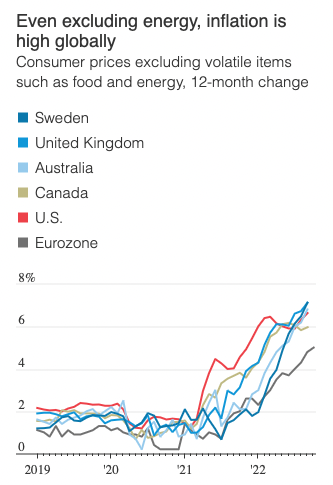
The problem with Phillips curve explanations for inflation surge, such as the paper presented at @ChicagoBooth IGM' #USMPF2023, is they largely ignore supply. @BostonFed prez Susan Collins presents a counterpoint here, noting key contribution of supply. bostonfed.org/news-and-event… 

"Unanticipated supply shortfalls...lowered capacity relative to pre-pandemic trends ... it is difficult to
assess extent, duration of supply challenges in real time – esp. if they depend on pandemic dev'ts, unexpected shocks such as Russia’s war in Ukraine." - Susan Collins
assess extent, duration of supply challenges in real time – esp. if they depend on pandemic dev'ts, unexpected shocks such as Russia’s war in Ukraine." - Susan Collins
3/ "Despite large drop in services consumption,
there was little decline in services price inflation .. (in) contrast with the... Great Recession... [which] again suggests a key role for supply constraints this time." Boston Fed prez Susan Collins.
there was little decline in services price inflation .. (in) contrast with the... Great Recession... [which] again suggests a key role for supply constraints this time." Boston Fed prez Susan Collins.
4/ "Expectatation was as economy reopened.. Supply – most notably labor supply, since services tend to be labor intensive – would increase to meet demand. [in fact]...the expected pickup in labor supply ...has been taking much longer... than expected." Susan Collins to #USMPF2023
• • •
Missing some Tweet in this thread? You can try to
force a refresh







